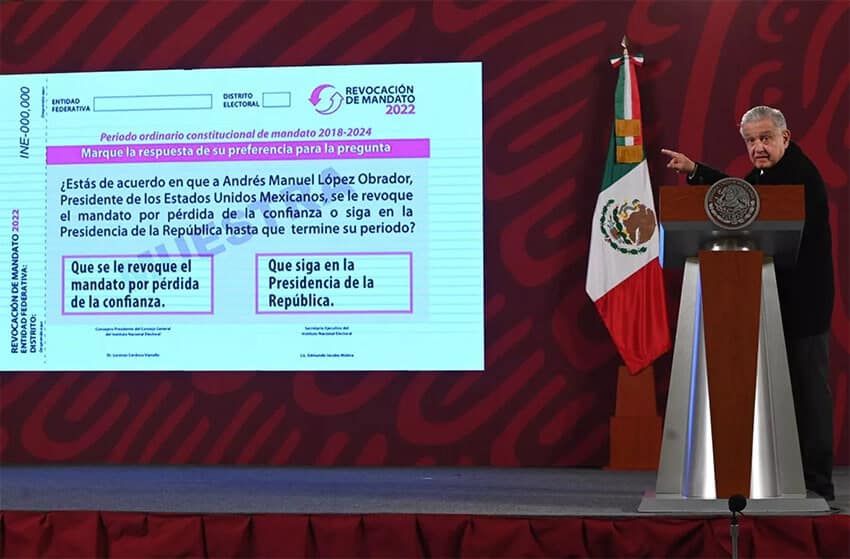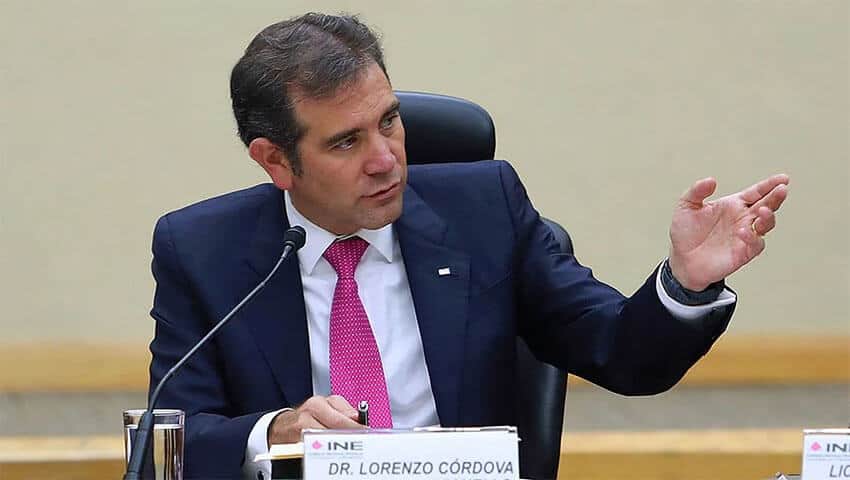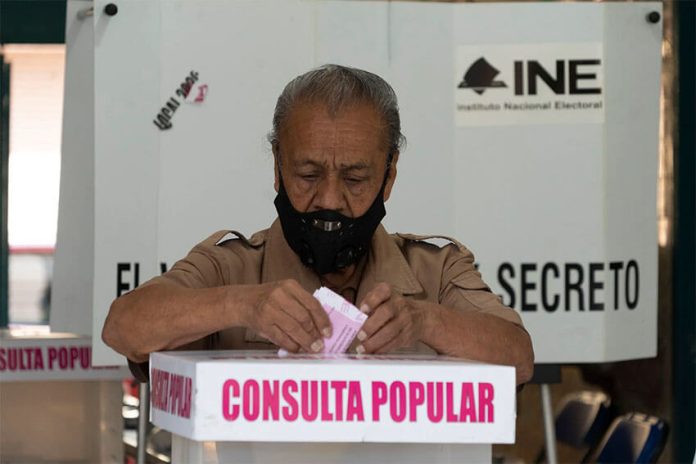Just over two weeks before Mexicans get the opportunity to have their say about whether President López Obrador should complete his six-year term, a new podcast looks at how the “revocation of mandate” referendum came about and the president’s motivations for holding it.
The latest edition of the Americas Society/Council of the Americas podcast Latin America in Focus poses the question, “Why is Mexico holding a presidential recall vote?”
AS/COA Online’s Carin Zissis hosts a discussion on the question with journalist, lawyer and political analyst Fernanda Caso.
The referendum, for which the National Electoral Institute has been given a budget of about US $78 million to organize, will be held on April 10 and the majority of participants are expected to vote in favor of López Obrador continuing as president, especially given that opposition parties are calling for a boycott of the vote.
Why, then, did AMLO, as the president is best known, go to the trouble of staging the expensive exercise?

Caso, host of the magazine Gatopardo’s podcast and head of the political website Latitud 3°12, said that the constitutional reform that allowed the revocation of mandate vote to be held could pave the way for a Mexican president to stay in office beyond his or her six year term, although she didn’t say that was AMLO’s intention.
“A lot of people fear that a president will eventually want to stay longer after a recall says that people like him,” Caso said.
She noted that a “strange fact” about the upcoming referendum is that “the people who are organizing it are the people who like the president.”
“… You would think that in a recall it would be the opposition who would ask for it,” Caso said. “… It’s the government asking people if they want the president to stay. So nobody is asking him to leave.”
The analyst said that AMLO is “obsessed with being a character in history books” and sees the recall vote “as an opportunity … [to be] the first president who went through a process like this where people want to kick him out and he got all this popular support.
“The thing is … nobody wants to kick him out of office so even that narrative is becoming weird,” Caso said.

She also said that AMLO is using the revocation vote to “gain allies for the 2024 election” and support for his proposed electricity, electoral and National Guard reforms.
“If he says, ‘This is the strength I have in all these places, … then you should be part of my team and you will have more possibilities of winning. If you are you are part of my team for 2024 then you should support my project right now and that project is all these reforms.’ I’m thinking specifically of one party, … this is just speculation, … but I think his bet is to have the … [once omnipotent Institutional Revolutionary Party] become his ally, either in a formal or an informal way,” Caso said.
In addition, the president is using the recall as a test for his political allies, including those interested in succeeding him as president, she said.
“He’s measuring his political allies. He’s asking governors, he’s asking mayors to … [make] a big effort to bring people out to vote so he’s going to see who can answer to that call,” Caso said.
“… There is also this internal battle happening inside his party, this recall is working as that. People who want to be the next [Morena] candidate … [are making] big efforts to show him they have the muscle to bring people out,” she said.
However, there is scant interest in the upcoming vote, Caso told Zissis.
Listen to the podcast:
“You go on the streets and people are not talking about it. It’s not a big discussion in the country, it’s just the president and his friends who are insisting on this exercise,” she said.
“… A very low turnout could be a bittersweet result for … [López Obrador] because it would mean people are not following him the same way they were in the beginning,” Caso said. “… It’s going to be a very costly exercise in terms of money but also in terms of the time the president and the people around him are investing in it.”
“We need a president focused on the main issues the country’s facing: the pandemic, insecurity, education – there are a lot of issues,” she said.
With reports from AS/COA Online
